Wait 'til next year? Your team probably isn't trying to win in 2019
Baseball's winter of discontent is nearly over.
One could be forgiven for feeling unenthused about the summer ahead.
On Thursday, baseball fans will reach deep into their closets for dusty hats and team-branded jackets that are insufficiently warm for late March. The pageantry will unfold big and bright. Max Scherzer and Masahiro Tanaka will take the mound for the first scheduled games in Washington and New York, respectively, and for one afternoon, everything will feel right again. Bat will meet ball and organs will chime and overpriced beers will be consumed, and you'll dare to consider, in a moment of weakness, what might happen if everything breaks right for your team.
But that renewed, reckless optimism will be fleeting.
Sooner than later, the cynicism and frustration that colored the previous five months will invariably resurface, because your team - as most of you will be swiftly reminded - isn't trying to win the 2019 World Series.
Already we can project with a reasonable degree of confidence the New York Yankees to win the American League East. If they don't, the Boston Red Sox will. For a fourth straight year, the Cleveland Indians will almost certainly take the American League Central. No team in the American League West ought to threaten the Houston Astros. And, in all likelihood, one of those clubs will ultimately defeat the Los Angeles Dodgers in the World Series. Or maybe it'll be the Philadelphia Phillies. It doesn't really matter. What matters is that we already know, definitively, what won't happen, and that's because too many teams just don't care to try.
Certain clubs, such as the Baltimore Orioles and Kansas City Royals, will be unapologetically bad in 2019, having only recently taken their first steps down the fraught path of rebuilding. (A collective bargaining agreement rife with myopic incentive structures has made this strategy tenable, and the success it birthed for the Astros and Chicago Cubs has made it palatable.) Others, like the Toronto Blue Jays and San Francisco Giants, will flounder out of sheer indifference to the possibility of being good.
Meanwhile, teams like the Indians and Cubs will enjoy a moderate level of success without having done anything meaningful this winter to improve their chances of winning the championship. In each of these instances, we know why. Though the clubs occupy different points on the win curve, they share the same organizing principle, one as simple as it is ghoulish: Contending is both optional and expensive, and choosing not to contend still pays well.
"If you want to go back to the early history of baseball, really the only way you made money was you had fans come and buy tickets," said J.C. Bradbury, an economics professor at Kennesaw State University and author of "The Baseball Economist". "So, (if) you had a better team, more fans went and bought tickets, bought concessions - that’s how you made all your money.
"Major League Baseball now is a multimedia entertainment enterprise in that it’s not only making money from selling baseball games, but it makes money from selling internet packages, from doing marketing for other sports leagues. Its online venture, BAM, has been wildly successful at things even outside sports. And most of this money is shared equally across teams."
Indeed, their cups runneth over. In 2018, the league generated a record $10.3 billion in revenue, according to Forbes, and that figure doesn't account for baseball's cut of the $2.58 billion earned from selling a 75 percent stake in BAMTech, a spinoff of MLB Advanced Media, to Disney. Thanks in part to revenue sharing, every team makes so much money irrespective of its record that the financial incentive to load up the roster with the best players - whether free agents or its own prospects - is as weak as the pretexts invoked by front-office polo-wearers to justify service-time manipulation for top prospects.
That's why only a handful of franchises seemed interested in signing young studs Bryce Harper and Manny Machado, and that's why accomplished closer Craig Kimbrel still doesn't have a job. Some of the game's biggest stars are now opting to forgo free agency for the safety of long-term extensions even though the league has broken its revenue records 16 years in a row. Player salaries in 2019, incidentally, are projected to drop for the second successive season.
Within this economy, borne of a deficient CBA, there are diminishing returns from operating in good faith. While Opening Day is seen as a blank slate, too many clubs have realized they can simply pocket the money they would have spent chasing a few more wins and still make out just fine. Better, even.
And while team ownership has always been about the money, the excuses for holding back on spending seemed especially lazy this winter. Recently, after clearly directing his baseball operations department to trim payroll for 2019, Indians owner Paul Dolan admitted to Zack Meisel of The Athletic that it's easier to profit as a rebuilding club, and insinuated that Cleveland won't try to sign superstar Francisco Lindor to an extension before he becomes a free agent after the 2021 season.
In 2019, apparently, there are no consequences for saying the quiet parts out loud.
Still, it wouldn't be fair to paint all 30 clubs with the same brush, as "not trying" exists on a spectrum. With that in mind, I've assigned each team an Effort Score for the dawning campaign, with 1 representing a laughable attempt to not suck in 2019 and 5 representing an especially laudable one. (Spoiler alert: there are far more 1s than 5s.)
Effort Score: 1
These teams made no meaningful attempt this winter to improve their chances in 2019, either for "strategic" purposes (i.e. tanking), financial reasons, or plain old indifference.
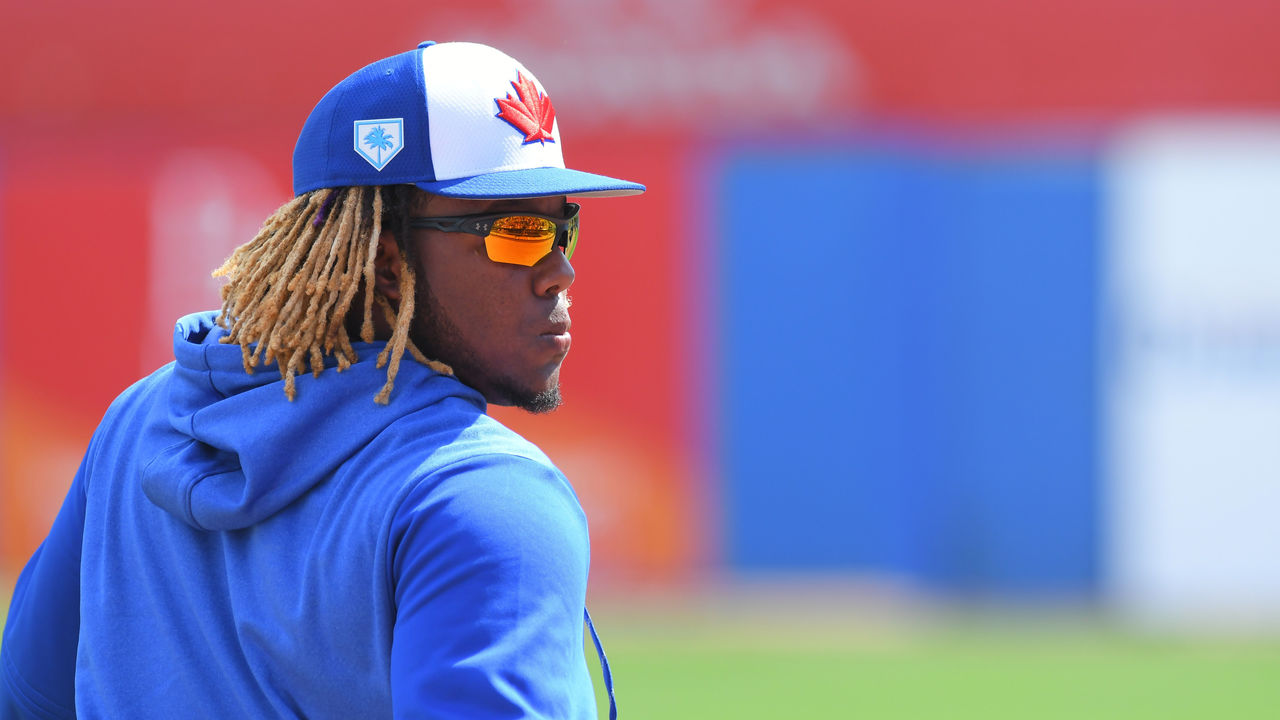
As one of the many strategically non-competitive teams, the Tigers hope to fumble their way to the first overall draft pick in 2020 - their roster very much reflects that goal - and their most notable offseason acquisitions, such as Josh Harrison, Jordy Mercer, and Tyson Ross, are nothing more than potential assets to swap for prospect capital ahead of the trade deadline.
Blessed with a frustratingly uncontested path to the postseason in the weak AL Central, the Indians were content to get worse this winter to save some money. They opted not to extend Michael Brantley a qualifying offer, spent nothing to replace him, and dangled both Corey Kluber and Trevor Bauer in trade talks.
The Blue Jays slashed their payroll by $45 million this winter instead of pursuing external upgrades who could both legitimize their wild-card chances in 2019 and be significant contributors beyond this season, when the competitive window, anchored by Vladimir Guerrero Jr. and Bo Bichette, is expected to open in earnest. Guerrero Jr. currently projects to be Toronto's best player in 2019, but likely won't debut until May thanks to an oblique strain that helped the front office avoid outrage over service-time manipulation.
Other teams: Arizona Diamondbacks, Baltimore Orioles, Chicago White Sox, Chicago Cubs, Kansas City Royals, Miami Marlins, Pittsburgh Pirates, San Francisco Giants, Seattle Mariners, Texas Rangers
Effort Score: 2
These teams made a perfunctory or insufficient attempt this winter to improve their chances in 2019.
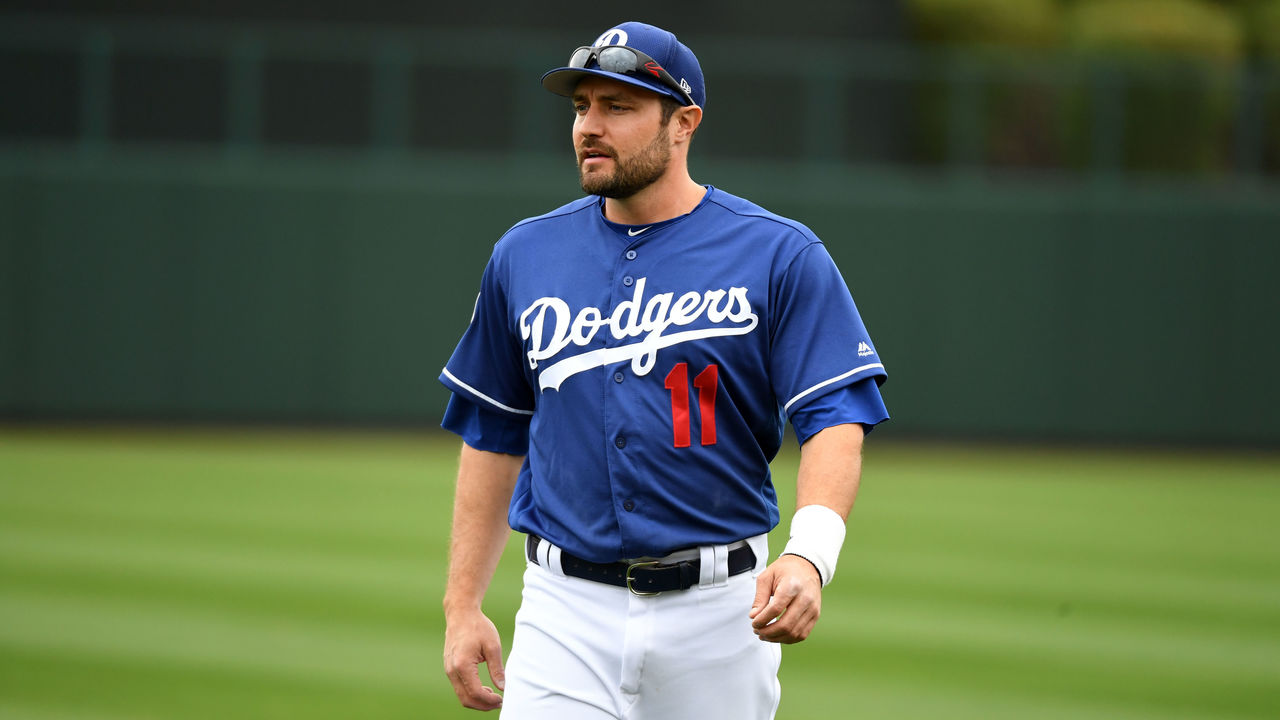
Yes, the Braves signed Josh Donaldson to a one-year deal, but the reigning NL East champions were otherwise silent, even though they could still very much use both Kimbrel and Dallas Keuchel given the considerable improvements made by their NL East rivals. Atlanta's poised, according to Cot's Baseball Contracts, to field its lowest Opening Day payroll since 2016.
Following a second straight World Series defeat, the Dodgers - baseball's second-most valuable franchise - took a cost-effective route to get over the hump, signing A.J. Pollock instead of Bryce Harper to fill an outfield void created by their salary-dump trade with the Reds. As with the Indians, the Dodgers' relatively easy path to the postseason presumably informed the club's offseason strategy.
It's easy to point at their outsized deal (by their standards, at least) for pitcher Charlie Morton and conclude that the Rays, who won 90 games last season, are making a legitimate push for 2019. But even with Morton on the books - along with several other ostensible upgrades including outfielder Avisail Garcia and catcher Mike Zunino - the club's total outlay for the upcoming season is $25 million less than its Opening Day payroll a year ago. Ultimately, it feels like the Rays are trying to act like a contender for a minimal cost.
Other teams: Colorado Rockies, Los Angeles Angels, Oakland Athletics
Effort Score: 3
These teams made a reasonable attempt this winter to improve their chances in 2019.
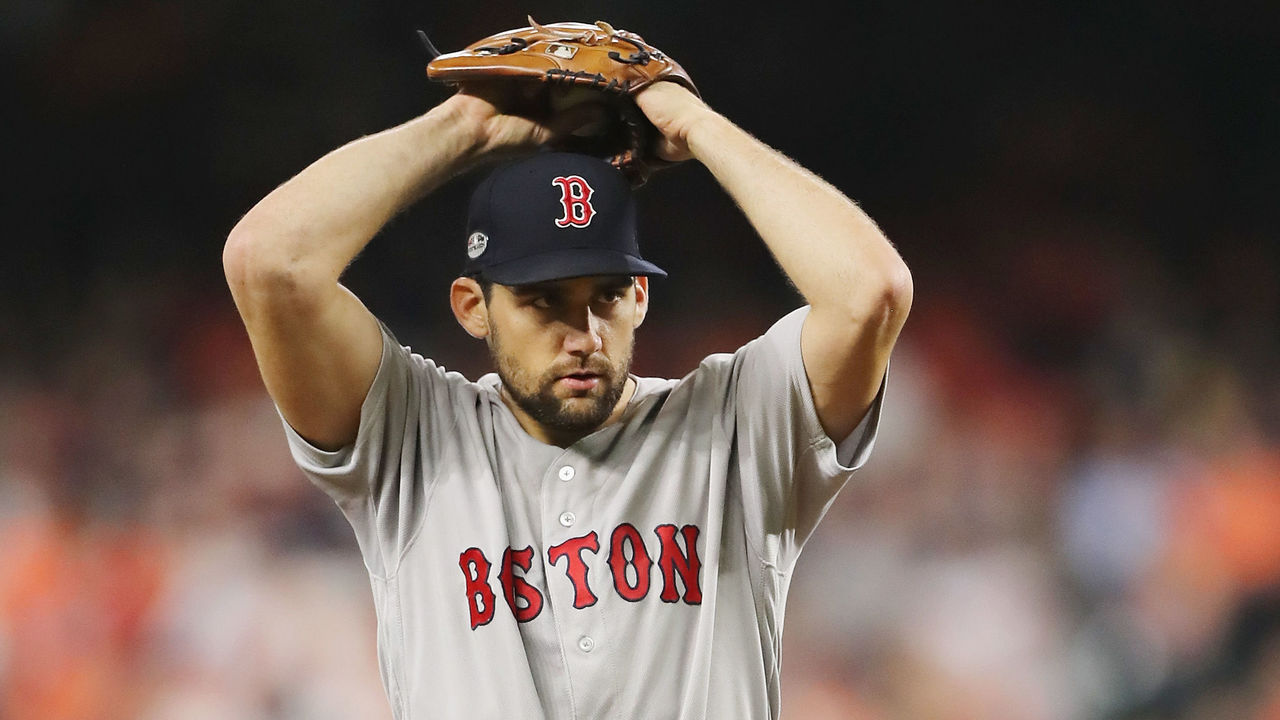
Had the Red Sox re-signed Kimbrel (or reliever Joe Kelly) along with starter Nathan Eovaldi and utility man Steve Pearce, their offseason would've been beyond reproach. Instead, even after extending Chris Sale's contract, it seems as if minimizing luxury-tax penalties was a top priority this winter for the reigning World Series champions, whose bullpen remains a huge question mark.
With the second American League wild-card spot plainly up for grabs, the Twins - undeterred by the stagnating development of key building blocks such as Byron Buxton and Miguel Sano - decided to go for it, overhauling their lineup with the additions of Nelson Cruz, Marwin Gonzalez, C.J. Cron, and Jonathan Schoop. Given Cleveland's minimal efforts, it's not impossible to envision Minnesota winning the division in 2019.
The Yankees weren't inactive this winter. They bolstered their pitching by acquiring James Paxton and Adam Ottavino and re-signing both Zach Britton and J.A. Happ, but they also weren't as spendthrift as one would've expected given their past ways and the availability of generational talents like Harper and Machado. As constituted, they have a good chance to dethrone the Red Sox. But they're the Yankees, and they haven't won the division since 2012. It's disconcerting that they would leave it to chance.
Other teams: Houston Astros, Milwaukee Brewers
Effort Score: 4
These teams made an aggressive attempt this winter to improve their chances in 2019.
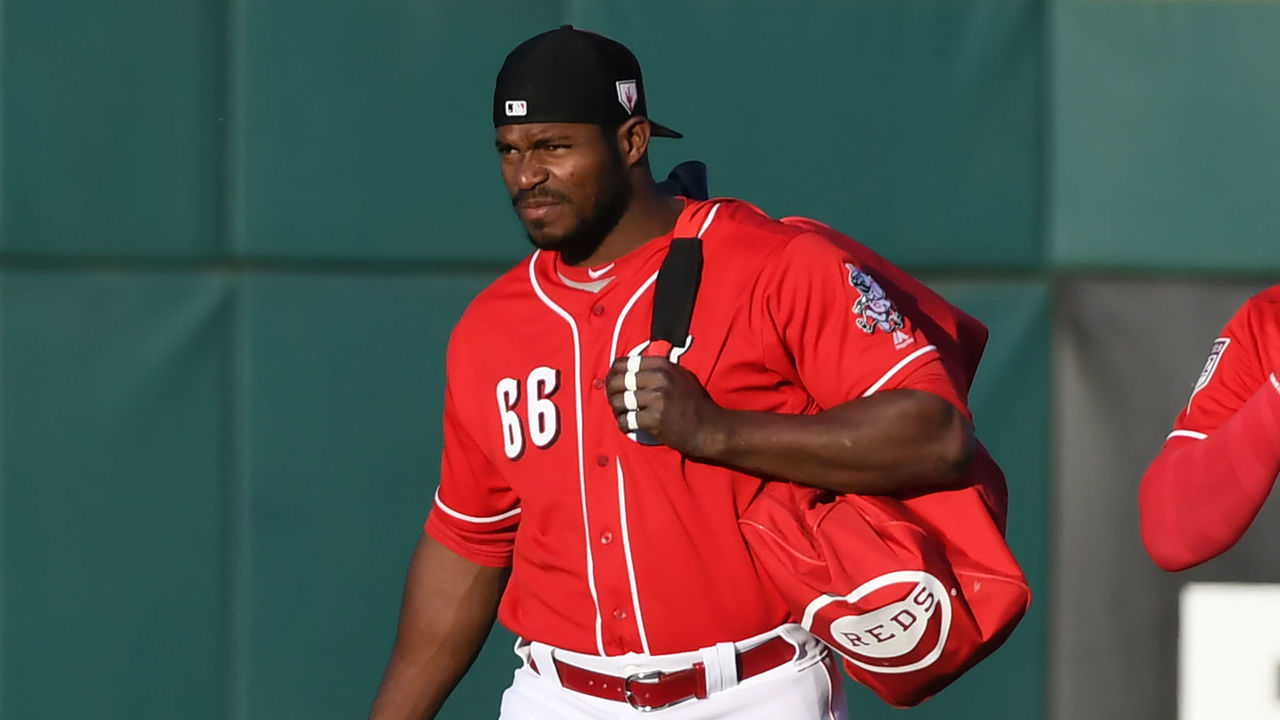
Resolved to not finish last in the NL Central for a fifth year in a row - and with their rebuild moving at a glacial place - the Reds commendably said "Screw it" and added some veteran talent despite presumably knowing the division title was out of reach. With Yasiel Puig, Matt Kemp, Sonny Gray, and Alex Wood around, the Reds are going to be more fun in 2019 than they've been in a half-decade, even if they don't seriously contend for a wild-card berth.
One year after signing Eric Hosmer to the biggest contract in franchise history, the Padres made an even more outsized (and unexpected) acquisition, inking Machado to a $300-million deal in February to wrest themselves out of their years-long rebuild sooner rather than later. The decision to include both Fernando Tatis Jr. and Chris Paddack on the Opening Day roster also suggests they're serious about being not bad in 2019.
Having endured three straight years without a postseason berth, the Cardinals' desire to win now became abundantly clear in December when they acquired All-Star first baseman Paul Goldschmidt from Arizona with only one year left on his contract (they later signed him to a five-year extension). St. Louis could've made the postseason without Goldschmidt or free-agent reliever Andrew Miller, especially with Alex Reyes and Tyler O'Neill primed to be regular contributors in 2019, but still decided a bold move was necessary.
Other teams: Washington Nationals
Effort Score: 5
These teams went all out this winter to improve their chances in 2019.
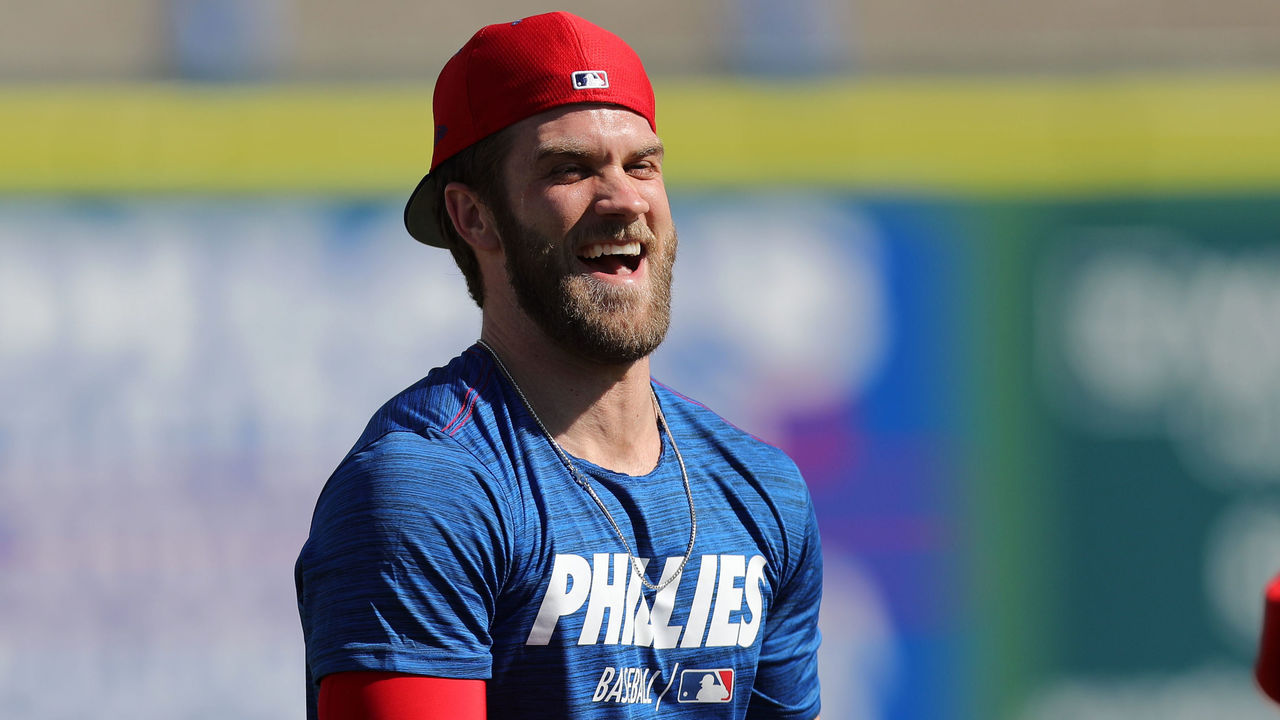
The Mets could've reset on the heels of a second straight losing season, but new GM Brodie Van Wagenen instead went in the opposite direction, turning the club into a legitimate World Series contender by acquiring closer Edwin Diaz and second baseman Robinson Cano in a blockbuster trade with Seattle while also adding Jed Lowrie, Wilson Ramos, and Jeurys Familia to a young core (Brandon Nimmo, Michael Conforto, Jeff McNeil, Peter Alonso) that's full of upside.
Not only did the Phillies fulfill their owner's promise to spend stupid money this winter - signing outfielders Harper and Andrew McCutchen and reliever David Robertson - but they also started moving out prospect capital for major-league assets such as shortstop Jean Segura and catcher J.T. Realmuto. It was a transformative offseason that turned the franchise, which hadn't enjoyed a winning season since 2011, into an immediate contender with a rosy long-term outlook.
Other teams: None
Jonah Birenbaum is theScore's senior MLB writer. He steams a good ham. You can find him on Twitter @birenball.